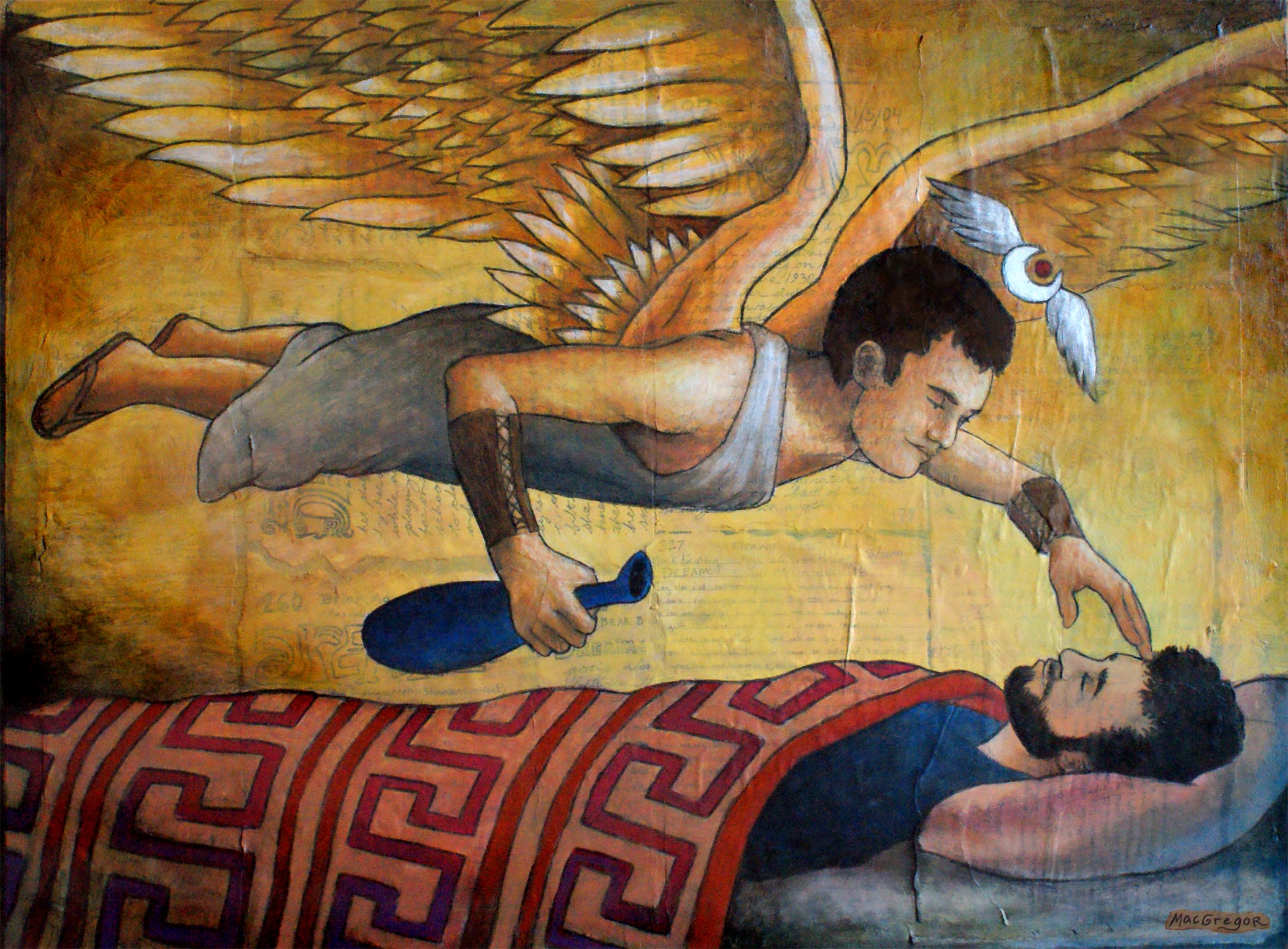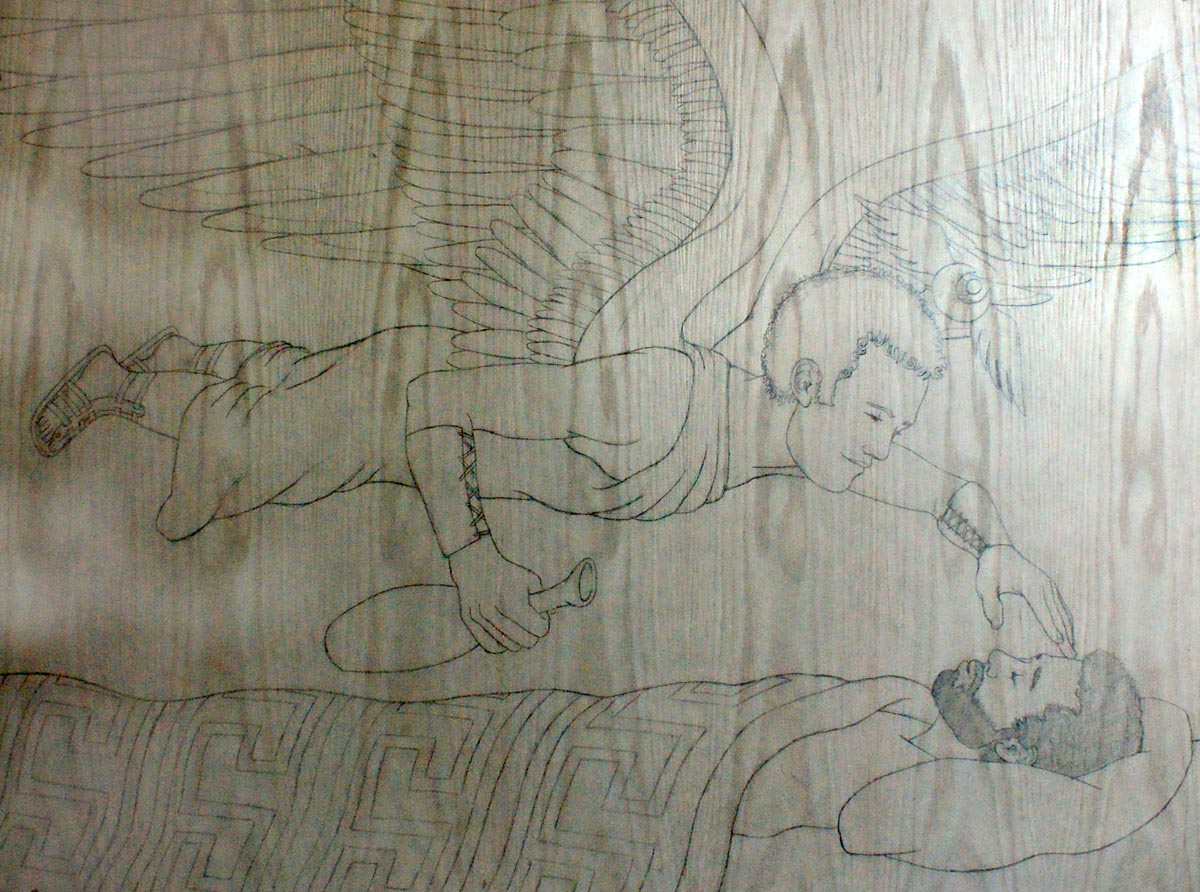I seem to be on a Christian counseling kick right now. So be it — this one will be shorter, I promise. I’m reading an intriging book by James R. Beck entitled “Jesus & Personality Theory”. I’m on page 36, so I reserve the right to be wrong or change opinions as I find out more while moving through the book.
The book has two theses:
1. “Jesus is a counseling model for Christian counselors in that his teaching speak directly to the five major structural components of human personality”
2. “These teachings (Jesus’ counseling) are indeed wonderful because they speak so perfectly to the composition of the human personality.”
Now I have not read enough yet to form an opinion on the above said theses — that is, if Christian counselors should counsel like Jesus and if Jesus’ methods as portrayed in the Bible speak perfectly to the human personality.
However the background set-up in the first few chapters really has me thinking how this all impacts us Pagans.
The Five-Factor Model of personality theory is a very, very well-tested theory that says there are (you guessed it) five traits that are common to all personalities:
- Openness to Experience
- Conscientiousness
- Extraversion
- Agreeableness
- Neuroticism
I won’t bore you with all the research studies backing this up — read this or one of many other books and studies if you are interested.
Keep in mind that according to Beck (backed again with his cited research) a HUGE percentage of the variance in these factors (33% to 65%) is GENETIC and only 0% to 11% is ENVIRONMENTAL (and the rest — who knows…). Furthermore, according to Beck (and cited research) these five factors change barely at all throughout adulthood…
Here’s where the difficulty for me comes in. You are supposed to try and behave like Jesus would behave, even if you have a very different five factor trait profile than Jesus did! You don’t have to have Jesus’ personality, but you should act like Him as the perfect rolemodel.
So, let’s say you are cursed by genetics to be very introverted (is it really a curse?). Is it fair to have to strive to be at least as outgoing as Jesus was? Jesus is judged to be about average on the extroversion trait. What if you are extremely extroverted? Is it fair to have to reign in your tendencies?
Furthermore (according to what I’m reading), these traits don’t change much in adulthood. So you are going to be fighting against your natural tendencies your whole life.
Now don’t get me wrong. By and large I think Jesus is a great rolemodel. He was loving, peaceful, forgiving, and a host of other worthy traits.
It’s just that I think here is where Paganism can really shine. I think there can be MULTIPLE rolemodels. Given a genetic predisposition towards certain traits (and behaviors), why not pick rolemodels that are reasonable and attainable for the person exhibiting that given trait set?
Why not work towards a balanced society or balanced workgroup of different types of people rather than asking for perfect balance within each individual?
Granted some people need stretch goals — to work on behaviors that are difficult to attain for their own good and the good of those around them. But it seems to me that having only one perfect model, Jesus, sets up people with the wrong genetics for failure. Of course, this fits in well with the Christian doctrine that people are inherently flawed and sinful. I tend to think that in the infinite wonder of the Divine, there can be many types of perfect jewels.
So, why not have clients pick patron deities that help them develop into the best version of their particular trait pattern? Why not search the earth for deity pantheons, archetypes, heroes out of mythology, etc. who present a balanced catalogue of the various trait combinations likely to be found in people?
I think that this has in fact been going on in one form or another for eons. Frankly the African diasphora religions like Santeria, Umbanda, Candomble, Voudun, etc. are suddenly looking much wiser to me. In these religions, followers are generally assumed to have an “orisha of their head” — that is, an orisha that they most resemble that they are trying to be like as much as possible as they mature. There is also a sort of balancing of the personality (that I don’t understand fully) that is supposed to occur as the follower goes through a series of initiations to accept other orishas and powers into themselves. IMHO this all bears much further psychological study.
For Christians who follow one perfect rolemodel, Beck’s approach makes sense and I honor the book he has written. I am thinking, however, that matching the various Powers to five-factor personality theory is an exercise to be taken on by Pagan counseling theorists enthusiastically.
I look forward to the rest of the book.


 have 10Â
have 10Â  More on
More on